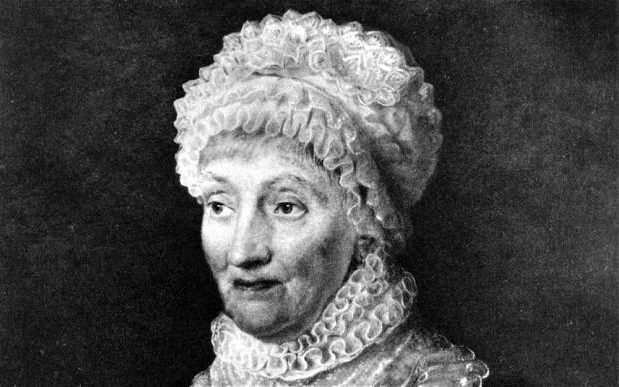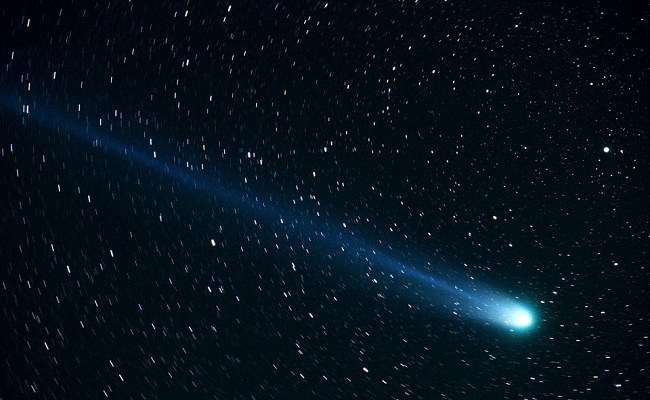Caroline Herschel ~ Little Known Astronomer
 NASA/MSFC/Aaron Kingery, Public domain, via Wikimedia Commons
NASA/MSFC/Aaron Kingery, Public domain, via Wikimedia Commons
Although the last name of Herschel may ring a bell, most people associate the surname with William (who made many discoveries in space). However, his sister Caroline, was actually the first women to receive the Royal Astronomical Society’s gold medal in 1828 for the discovery of six new comets and also the first female to be paid for her contributions. This prestigious award would not be given to another woman until 1996.
Today (March 16th) would’ve been Caroline’s 266th birthday so we honor her and her contributions to space this day. She was born in 1750 in Hanover Germany and the eight child for the Herschel family. Caroline was a pioneer for women at a time when females were viewed mostly as wives, mothers and housekeepers. Although, Caroline very well may have wanted those titles, she was plagued when she was 10 years-old with typhus, a disease that left her growth stunted and her body badly scarred. Because of Caroline’s physical “disabilities” (she never grew taller than 4 ft 3 in) it was assumed she would never marry.
M. F. Tielemanm, Public domain, via Wikimedia Commons
Caroline the Soprano
After experiencing a difficult childhood, Caroline moved to England when she was 22 to join her brother William Herschel in Bath. Here she trained as a singer and actually was able to nab a part in many performances as a soprano. Oddly enough, William also had started his career as a musician, but soon developed a passion for astronomy, which he shared with his sister.
Caroline the Assistant
After William left his music career behind he went on (in 1778) to discover the planet Uranus. This indeed was a huge find and for it he was knighted and appointed to the position of King’s Astronomer for George III. By this time Caroline was in her early thirties and still living in England, so she traveled with her brother and became his assistant.
Caroline the Discoverer
Caroline may have only been an assistant by title, but that didn’t stop her from making a few astronomical observations on her own. The year was 1786 and summer was in full swing when Caroline made her first discovery; a comet. This was huge since comets are made up of gas and ice, and often have a long tail, or coma. Plus, being a woman, Caroline was definitely in an unique position for the time period.
Bill Ingalls, Public domain, via Wikimedia Commons
Caroline’s Comets & Crater
Caroline must have been bitten by the astronomy bug, because she went on to discover seven comets, five of which she is given full credit for. Several of the comets she discovered, such as the 35P/Herschel-Rigollet comet, which was last seen in 1939, were also named after her. But that’s not all, Caroline also has a moon crater (C. Herschel) named in her honor and also the asteroid 281 Lucretia (which is her second given name) to her credit.
Caroline’s Awards
Although, not a full-fledged astronomer, Caroline was still recognized as being William’s assistant and started getting paid to do so. This made her the first woman to every be paid in this field for her contribution to science.
Caroline Herschel also was the first woman to be awarded the Royal Astronomical Society’s top prize in 1828 for producing a catalog of nebulae (interstellar clouds of dust, hydrogen, helium and other ionized gases). The next woman to win the gold award was Vera Rubin in 1996.
When Caroline was 96 (the year before she died) she was awarded a Gold Medal for Science from the King of Prussia. It was given to her “in recognition of the valuable services rendered to Astronomy by you, as the fellow-worker of your immortal brother, Sir William Herschel, by discoveries, observations, and laborious calculations.”
Caroline may not have been a “beauty” in the eyes of man, but her contributions to astronomy and science will never be forgotten.
